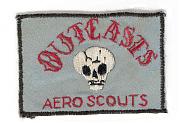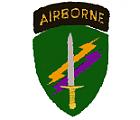I do not believe we properly secure the people of Iraq against insurgent retribution. In order to win, we must get actionable intelligence. In order to get the intel, we've got to make the people feel safe giving it to us. In order to make them feel safe, we've got to be able to respond quickly if an informant is in danger. We've got to foster a climate of safety in the neighborhoods. I believe that by living on FOBs, detached from the people, we fail to do this. We should be living in the towns and cities in platoon sized elements, with Iraqi Army and Iraqi Police platoons attached to each US platoon. Intelligence is not processed through a lumbering S-2 chain, but passed directly to the platoon leaders on their cell phones, the numbers to which will be common knowledge amongst the people. Flex whatever patrol is out at the time to investigate. This company size element would be like the local police precinct. Comments?










Bookmarks